Oddsfish! by Robert Hugh Benson (most interesting books to read .TXT) 📖
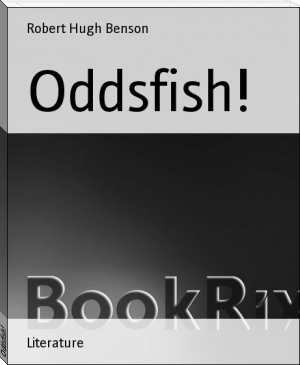
- Author: Robert Hugh Benson
Book online «Oddsfish! by Robert Hugh Benson (most interesting books to read .TXT) 📖». Author Robert Hugh Benson
I did not go to the trial of Mr. Coleman; for that I had nothing to say for him; and indeed Mr. Coleman's own letters--written three or four years ago--were the severest witnesses against him, in which he had written to Father La Chaise--(whom Oates at first called Father Le Shee)--the French King's confessor, and others, that if he could lay hands on a good sum of money, he could accomplish a great project he had for the restoration of the Catholic religion in England. (These letters were found in a drawer he had forgotten, when he had burned all the rest; and proved very unfortunate for him.) He meant by this, I have no doubt, the bribing of many Parliament-men to win toleration, and to get His Royal Highness restored as Lord High Admiral. He said this was his meaning; and I see no reason to doubt it, for he was a pragmatical kind of man, full of great affairs; but Chief Justice Scroggs waved it all away; and it was made to appear exactly consonant with all that Oates and Bedloe had said as to the project of killing the King. So great was the excitement, not of the common people only, but of those who should have known better, and so shrewd were these who took advantage of it, that my Lord Shaftesbury, who was waxing very hot upon the supposed Plot, for his own ends, was heard to say that any man that threw doubt on the plot must be treated as an enemy. Mr. Coleman was executed at Tyburn on the third day of December.
* * * * *
The trial of Father Ireland, Mr. Grove and Mr. Pickering--who was a Benedictine lay-brother--was opened on the seventeenth day of December, in the Sessions House at Justice Hall in the Old Bailey.
I was in the Court early, before the trial began, carrying a letter with me which Mr. Chiffinch got for me from my Lord Peterborough, that I might have a good place; and I had a very good one; for it was in a little gallery that looked down into the well of the court, so that I could see all that I wished, and the faces of all the prisoners, judges and witnesses, and yet by leaning back could avoid observation--for I had no wish, for others' sake, if not for my own, to be recognized by any of the witnesses. The seats for my Lords were on the left, under a state, with their desks before them; the place for the prisoners on the right, facing the judges; and for the witnesses opposite to me. The jury was beneath; and the counsels in front of them with their backs to me.
When the Court was full to bursting, my Lords came in, with the Chief Justice--that is Sir William Scroggs--in the midst. I had never seen him before, though I knew how hot he was against Catholics, and I looked to see what he was like. It was a dark morning, and the candles were lighted on my Lords' desks; and I could see his face pretty well in their light. He was in scarlet, and wore his great wig; and he talked behind his hand, with what seemed a great deal of merriment to Mr. Justice Bertue, who sat on one side of him, and the Recorder Jeffreys who sat upon the other. He had very heavy brows; his face was clean-shaven, and his mouth was like a trap when he shut it, and looked grave, as he did so soon as the clerk had done his formalities. He was a strong man, I thought, who would brook no opposition, and would have his way--as indeed he did; and the rest of my Lords had little or no say in the proceedings; and least of all had the jury, except to do what the Lord Chief Justice bid them.
The three prisoners--for Mr. Whitbread and Mr. Fenwick were presently withdrawn to be tried later, since they could not get two false witnesses against them at that time--were Mr. Ireland, Mr. Grove and Mr. Pickering, and I looked upon them with infinite compassion, to see how they would bear themselves. Mr. Pickering I had never seen before; so I could not tell whether or no he bore himself as usual. But the two others I had seen again and again; yet, with respect to them both I remembered principally that occasion when Mr. Ireland had entertained his mother and sister in Mr. Fenwick's lodging on that one night he was in town, and gone off with them into the dark so merrily; and Mr. Grove had brought up the chocolate in white cups, and we had all been merry together. Now they stood here in the dock together, and answered to their names cheerfully and courageously; and I could see that neither anguish of heart nor the fear of death had availed to change their countenances in the leastest degree. They stood there, scarcely moving, except once or twice to whisper to one another, while Dr. Oates told his lying tale.
It was now for the first time that I understood how shrewdly, and yet how clumsily now and then, the man had weaved together his information. He spoke with an abundance of detail that astonished me; he spoke of names and places with the greatest precision; he related how himself had been sent from St. Omer's with fifty pounds promised him, to kill Dr. Tonge who had lately translated a book from the French named "The Jesuits' Morals"; he spoke of a chapel in Mrs. Sanders' house, at Wild-House, where he had been present, he said, at a piece of conspiring; and so forth continually, interlarding his tale with bursts of adjuration and piety and indignation, so evidently feigned--though with something of the Puritan manner in it--that I marvelled that any man could be deceived who did not wish to be; and all with his vile accent. He spoke much also, as Mr. Whitbread had told me that he would, of the consult of the Fathers--of all that is, who had the _jus suffragii_ in England--that had been held at the White Horse Tavern in the Strand, in April; pretending that at this the murder of the King was again decided upon, and designed too, in all particulars; how Mr. Pickering and Mr. Grove had been deputed to do the killing in St. James' Park with screwed pistols, as His Majesty walked there, or if not there, at Newmarket or Windsor; and how commissions had been given to various persons (whom he named), which they were to hold in the army that was to be raised, when His Majesty had been murdered, and the French King Louis let in with his troops. Worst of all, however, was the assertion which he made again and again that no Catholic's oath, even in Court, could be taken to be worth anything, since the Pope gave them all dispensations to swear falsely; for such an assertion as this deprives an accused man of all favour with the jury and destroys the testimonies of all Catholic witnesses. And, what amazed me most of all was that Chief Justice Scroggs supported him in this, and repeated it to the jury again and again. He said so first to Mr. Whitbread, before he was withdrawn.
"If you have a religion," he said, "that can give a dispensation for oaths, sacraments, protestations and falsehoods, how can you expect that we should believe you?"
"I know no such thing," said Mr. Whitbread very tranquilly.
Bedloe, too, told the same tale as he had told before, but with many embellishments; and was treated by my Lords with as much respect, very nearly, as Oates himself; and they were both given refreshment by the Chief Justice's order.
* * * * *
I could have found it in my heart to kill that man--Oates, I mean--as he stood there in his gown and bands and periwig, with his guards behind him, swearing away those good men's lives; now standing upright, now leaning on the rail before him, and now reposing himself on a stool that was brought for him. His monstrous countenance was as the face of a devil; he feigned now to weep, now to be merry. But most of all I hated the man, when the piteous sight was seen of the entrance of Mrs. Ireland and her daughter, who came to testify that Mr. Ireland was not in London at all on those days in August when Oates had sworn that he had spoken with him there. They stood there, as gallant women as might be, turning their eyes now and again upon the priest who was all the world to them by ties both of nature and grace; but all their testimony went for nothing, since, first my Lord had told the jury that a Catholic's oath was worth nothing, and next the prisoners had had no opportunity to know what charges precisely they were that were to be brought against them, and had had therefore no time to get their witnesses together. They complained very sharply of this; but my Lord puffed it all away, and would scarcely allow them to finish one sentence without interruption.
Mr. Ireland said upon one occasion that though he had no witnesses, for he had had no time to get them, yet he could get witnesses that there were witnesses.
"I know," said the Chief Justice, "what your way of arguing is; that is very pretty. You have witnesses that can prove you have witnesses, and those witnesses can prove that you have more witnesses, and so _in infinitum_. And thus you argue in everything you do."
It was growing dark when the evidence (for so it was called) was done; and the end was drawing near; and the candles which had been put out long ago were lighted again by an usher, who came in with a taper when the Lord Chief Justice called for lights. But the candles burned very badly, by reason of the closeness of the Court in which so many persons had been gathered for so long; and shed but a poor illumination. My eyes were weary too with staring upon the people--now upon the monstrous face of Oates, that was like a nightmare for terror, now upon the prisoners so patient in the dock, and now upon my Lords on their high seats beneath the state, and especially upon that hard and bitter face of Chief Justice Scroggs who, if ever a man murdered innocent folk, was murdering to-day the three men before him, by the direction which he gave to the jury, and the manner he conducted the case. I could, by now, see the faces only one by one, as each leant into the light of the candles; and it appeared to me, again and again, that these were mocking demons and not men, and Oates the lord of them all and of hell itself from which they all came, and to which they must return. I closed my eyes sometimes, both to rest them, and that I might pray for bare justice to be done; but my prayers were to me like the lifting of weights too great for my strength. One hope only remained to me, and that
 Have you ever thought about what fiction is? Probably, such a question may seem surprising: and so everything is clear. Every person throughout his life has to repeatedly create the works he needs for specific purposes - statements, autobiographies, dictations - using not gypsum or clay, not musical notes, not paints, but just a word. At the same time, almost every person will be very surprised if he is told that he thereby created a work of fiction, which is very different from visual art, music and sculpture making. However, everyone understands that a student's essay or dictation is fundamentally different from novels, short stories, news that are created by professional writers. In the works of professionals there is the most important difference - excogitation. But, oddly enough, in a school literature course, you don’t realize the full power of fiction. So using our website in your free time discover fiction for yourself.
Have you ever thought about what fiction is? Probably, such a question may seem surprising: and so everything is clear. Every person throughout his life has to repeatedly create the works he needs for specific purposes - statements, autobiographies, dictations - using not gypsum or clay, not musical notes, not paints, but just a word. At the same time, almost every person will be very surprised if he is told that he thereby created a work of fiction, which is very different from visual art, music and sculpture making. However, everyone understands that a student's essay or dictation is fundamentally different from novels, short stories, news that are created by professional writers. In the works of professionals there is the most important difference - excogitation. But, oddly enough, in a school literature course, you don’t realize the full power of fiction. So using our website in your free time discover fiction for yourself. 
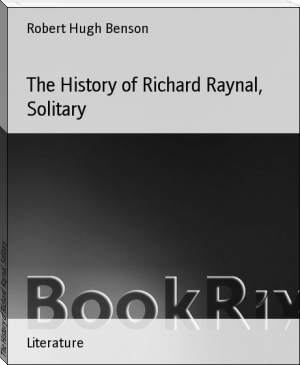
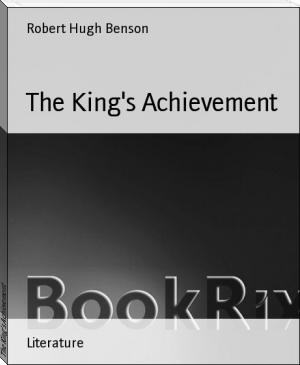
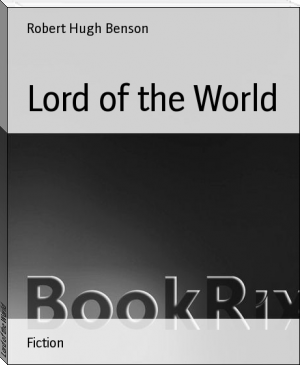
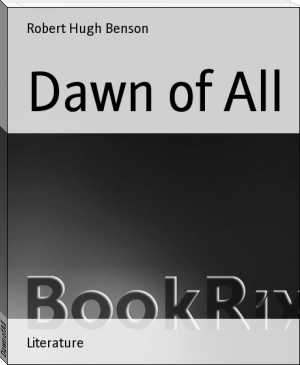
Comments (0)